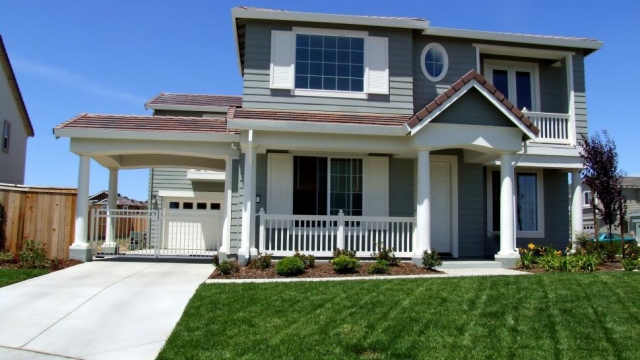
Detroit, once known as the industrial heartland of America, faced significant challenges over the past several decades. However, in recent years, the city has begun to experience a remarkable transformation that is attracting attention from investors, homeowners, and entrepreneurs alike. The real estate scene in Detroit is witnessing a renaissance, characterized by revitalization and renewed interest in its neighborhoods and commercial districts.
This revitalization is not just about increased property values or new developments; it is a reflection of a broader cultural and economic resurgence. From historic buildings being repurposed to new residential projects breaking ground, Detroit’s real estate market is evolving in exciting ways. In this article, we will explore the factors driving this real estate renaissance, the neighborhoods that are leading the charge, and the opportunities that await those looking to invest in Detroit’s promising future.
Current Market Trends
Detroit’s real estate market has experienced a significant transformation in recent years, reflecting a growing optimism about the city’s future. As developers invest in both residential and commercial properties, there is a noticeable shift towards new construction and revitalization of existing structures. This increase in investment is driven by a combination of affordable property prices, urban development initiatives, and an influx of younger residents seeking urban living. Neighborhoods that were once considered declining are now attracting interest from both local and out-of-state buyers.
Gentrification has become a key theme in the real estate landscape, particularly in areas like Corktown and Midtown. These neighborhoods have seen a surge in renovation projects, bringing modern amenities while preserving their historic charm. As new businesses open and communities grow, property values are beginning to rise, creating opportunities for both homeowners and investors. However, this trend has also sparked conversations about displacement and the need for equitable development that benefits long-term residents.
The rental market in Detroit is also showing signs of strength, with a growing demand for both single-family homes and multi-family units. The appeal of Detroit’s lower cost of living compared to other major cities continues to attract renters, contributing to a competitive rental market. Investors are responding to this demand by converting older buildings into modern apartments, further diversifying the types of housing available. As the city continues to evolve, the real estate sector is poised to play a crucial role in its ongoing renaissance.
We Buy Houses in Detroit
Investment Opportunities
Detroit’s real estate market is experiencing a remarkable transformation, attracting a wave of investors eager to capitalize on its revitalization. The city’s historic neighborhoods, once considered blighted, are now emerging as prime locations for both residential and commercial development. Key areas like Midtown and Corktown have seen a surge in property values, driven by the influx of new businesses and young professionals seeking urban living experiences.
Affordable home prices compared to national averages make Detroit an appealing option for first-time homebuyers and seasoned investors alike. With various programs and incentives offered by the city, such as tax abatements and development grants, the barriers to entry have lowered significantly. Investors can find opportunities in single-family homes, multi-family units, and even commercial real estate, leading to attractive returns as the city continues to grow.
Furthermore, the trend of adaptive reuse is gaining momentum, with many historical buildings being repurposed for modern uses. This not only preserves the architectural heritage of Detroit but also creates unique living and working spaces that resonate with the creative community. As more people flock to the city for its revitalized culture and economic prospects, the demand for innovative real estate solutions will only increase, making now an opportune time to invest in Detroit’s bright future.
Revitalization Projects
Detroit is experiencing a wave of revitalization projects that are reshaping its neighborhoods and attracting new residents and businesses. These initiatives focus on transforming abandoned buildings and vacant lots into vibrant spaces that meet the needs of modern urban living. From repurposing historic sites to constructing new developments, these projects contribute to the overall growth of the real estate market in Detroit and enhance the appeal of the city.
One notable project is the redevelopment of the waterfront area, which aims to create a bustling hub for recreation, dining, and entertainment. With parks, walking paths, and commercial spaces, this transformation is designed to draw residents back to the riverfront and encourage community engagement. Such revitalization efforts highlight the potential for Detroit to not only reclaim its former glory but also evolve into a more livable and desirable city.
In addition to waterfront development, initiatives targeting the downtown area demonstrate a commitment to revitalizing urban spaces. Efforts to restore historic buildings alongside new construction projects aim to create a unique blend of the city’s rich history and modern amenities. This blend is appealing to a diverse population, including young professionals and families, and plays a crucial role in the ongoing real estate renaissance in Detroit.
Community Impact
The revitalization of Detroit’s real estate market has been a catalyst for positive change within the community. As new developments arise, they bring not only improved housing options but also job opportunities for local residents. This influx of investment has enabled many to secure stable employment, fostering a sense of economic security that has been elusive in recent years. With more people moving into the city, local businesses are also seeing a resurgence, contributing to a vibrant community atmosphere.
As the city transforms, efforts are being made to ensure that the growth benefits everyone, particularly those who have long been disenfranchised. Affordable housing initiatives are being prioritized alongside luxury developments, striving to create a balanced landscape that accommodates diverse socio-economic groups. Community organizations are partnering with developers to advocate for inclusive practices, working to ensure that long-time residents are not pushed out in the wave of new investments.
Furthermore, the improvement in real estate is correlated with a revitalization of public spaces and community resources. Parks are being upgraded, neighborhoods are becoming cleaner, and public transportation is seeing enhancements. These changes encourage greater community engagement and foster connections among residents, instilling a renewed pride in the Motor City. The real estate renaissance in Detroit is, therefore, not just about buildings and properties; it is about rebuilding a community and setting the stage for a hopeful future.

